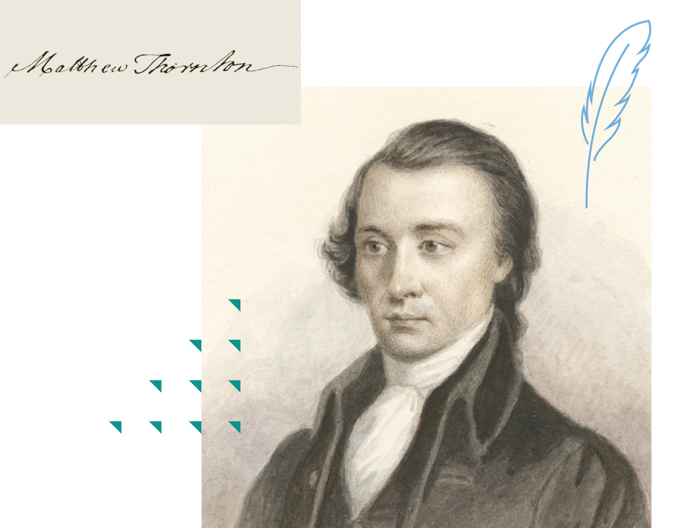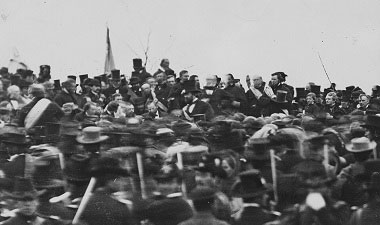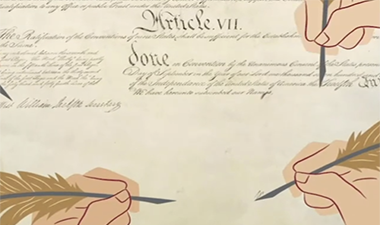Summary
Matthew Thornton was elected to the Continental Congress after the debate on independence had taken place, but he was permitted to sign the Declaration In November.
Matthew Thornton | Signer of the Declaration of Independence
2:40
Biography
Matthew Thornton was born in Ireland, the son of James and Elizabeth Thorn ton, but when he was three , his family immigrated to America. The Thorntons first settled in a frontier town of Maine, but after a Native American attack in the summer of 1722, they moved to the more settled and safer Worcester, Massachusetts. Matthew studied medicine in nearby Leicester and set up a very successful practice in New Hampshire. He served the New Hampshire Militia troops as their doctor during the British conquest of the French Fortress Louisbourg in Canada in 1745. Thornton’s rise as a public figure began in 1758 when he was elected to serve in the New Hampshire Provincial Assembly. He also won a royal commission as justice of the peace, an appointment that was often the first acknowledgement of a community’s esteem.
Matthew Thornton became a central player in the colony’s politics by 1774. In that year, Royal Governor John Wentworth, prorogued , or dismissed, New Hampshire’s Provincial Assembly and after Lexington and Concord, he fled the colony. In 1775, Thornton was elected president of the New Hampshire Provincial Congress, which was, in effect, the governing body of the colony. By this time, the Provincial Assembly had created a Committee of Safety, one of the steps that would lead to independence. Thornton was also chosen to chair that critical committee. As he took office, he issued a statement to the people of New Hampshire in which he asserted that America was in crisis and that “the horrors and distresses of a civil war” were now a reality. “Duty to God, to ourselves, to posterity, [and] ends forced by the cries of slaughtered innocents, have urged us,” he declared, “to take up arms in our own defense… ”
Thornton worked on the draft of a state constitution created by a convention in December of 1775. In January 1776 this constitution was ratified by the Congress of New Hampshire, which made New Hampshire the first American colony to enact its own constitution.
Thorton was elected to the Continental Congress in 1776 after the debate on independence had taken place. He did not arrive in Philadelphia until November of that year, but he was permitted to sign the Declaration of Independence four months after its official signing that summer. He was elected once again to serve in the Continental Congress, but poor health forced him to decline.
In 1780 Thornton retired from his medical practice and purchased a farm on the banks of the Merrimack River, near Exeter. By then, he was a locally known political essayist and was soon to become a successful farmer and ferry operator. Although he never attended law school, he had been appointed to the New Hampshire Superior Court in 1776 and continued to serve on the bench until 1782. By 1784, he was in the New Hampshire Senate. He died at the age of 89 on a visit to his daughter in Massachusetts during the summer of 1803.
At his funeral, the minister described Matthew Thornton as “venerable for his age, and skilled in his profession, and for the several very important and honorable offices he had sustained.” Friends and contemporaries echoed the respect offered in this eulogy. Contemporaries described him as a man of considerable intelligence and, in his private life, an agreeable companion who loved to shower others with entertaining anecdotes and tales of fictitious adventures, spun for their amusement.








